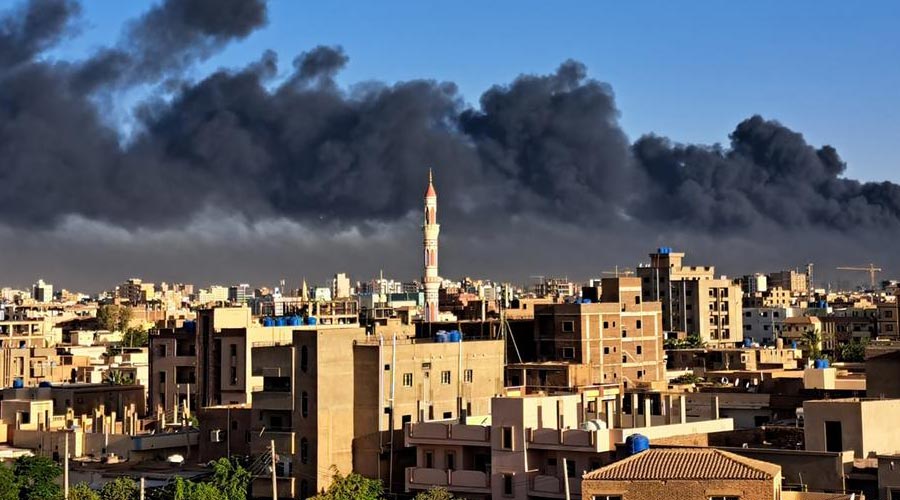Sudan’s military has agreed to a 24-hour humanitarian ceasefire proposed by the Rapid Support Forces, the paramilitary group it has been battling for control of the country.
A similar ceasefire proposal on Tuesday did not hold, and fighting continued through the night. It remained unclear whether the newest truce would be honoured by both sides. In a statement, the Sudanese Army said the truce had begun at 6pm (local time) on Wednesday “for humanitarian purposes”, and would last until Thursday evening, provided the RSF honours it.
Foreign officials said they hoped that the latest ceasefire would take root. Many residents are running out of food and drinking water, and fierce fighting in the city centre has killed several civilians. Hospitals have been under strain because of the fighting.
There have been numerous reports of RSF paramilitaries, in particular, breaking into homes and robbing or assaulting civilians.
The foreign officials said that preparations have been underway to move foreign citizens from their homes to embassy compounds and other secure locations if the truce holds.
‘We are paralysed’
A fifth day of intense fighting that has trapped and traumatised civilians is deepening a humanitarian crisis in Sudan, where millions of people are without food, water or electricity in besieged cities across the country.
As hopes for a ceasefire have flared and swiftly sputtered, many residents are imprisoned, pinned down in their homes by fierce street battles, aerial bombardments and sniper fire.
“It is a very bleak and dangerous situation looking forward,” said Ghazali Babiker, who heads the Sudanese chapter of Doctors Without Borders, a medical charity that operates in conflict zones.
The group has dozens of healthcare workers in the capital city of Khartoum, many of them experienced operators in dangerous situations. Still, they have not been able to treat a single case since the start of the fighting on Saturday and are unable to move supplies to hospitals on the brink of collapse, Dr Babiker said. “We’re paralysed, we cannot move,” he said.
Speaking by phone from Khartoum, Dr Babiker said he had relatives locked down in homes across the region. One aunt, Butaina Omer, had not dared to leave a window-less room in her home, where she is hiding with her husband and 3 children, since the start of the fighting on Saturday.
New York Times News Service











